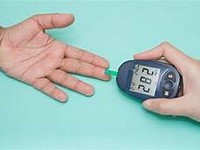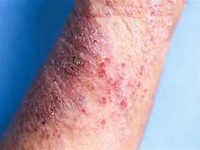
HERPES
FOODS THAT HEAL
FOODS TO LIMIT
WHO’S AFFECTED
2% of Americans have herpes simplex type 2 (HSV-2)
A common and highly contagious infectious disease, herpes is caused by strains of the herpes simplex virus and is noted by painful and itchy blisters
Type 1 herpes, or oral herpes, causes cold sores or fever blisters around the mouth
In some cases, this type of herpes infects the eyes and can result in blindness or, even more seriously, can spread to the brain and result in life-threatening herpes encephalitis
Type 2, or genital herpes, is sexually transmitted and causes sores in the genital and anal areas
Engaging in oral sex with an infected person can cause mouth and throat blisters that are difficult to differentiate from type 1 herpes
Regardless of the type or location, herpes blisters usually rupture into open weeping sores that crust over and eventually heal within a few days or weeks
Some people also experience a mild fever, swollen lymph nodes, and fatigue
Even after healing, the virus remains dormant in the body; some people never have another attack, while others have repeated but milder eruptions sporadically throughout their lives
20.9% of American women have type 2 herpes, almost twice as many as men at 11
5%
Recurrences may be triggered by hormonal changes, physical or emotional stress, fever, exposure to the sun, or other environmental factors
Nutrition Connection
Certain foods and drugs precipitate recurrences in susceptible peopleKeep notes of those items and avoid them while bolstering your immune system through diet
Follow these tips: Eat a nutritious diet
To help prevent recurrences, strengthen your immune system to resist disease by eating a well-balanced diet with plenty of whole grains, fresh fruits and vegetables, and protein
Eat foods rich in lysine
Foods high in the amino acid lysine, found in meat, fish, milk, and dairy products, may help to reduce the frequency of herpes attacks
The supplement version can also help; some natural medicine advocates recommend taking 500 to 1,000 mg of L-lysine daily on an empty stomach
It can be found in natural food stores
Discuss with your doctor before taking
Eat yogurt
Anecdotal evidence suggests that Lactobacillus acidophilus, a healthy bacteria found in certain yogurts containing live or “active” cultures and also sold in capsule form, may help prevent recurrences of cold sores
You may need to take supplements to get a therapeutic dose
Avoid excessive alcohol and caffeine
In large amounts, alcoholic and caffeinated drinks can suppress the immune system
Beyond the Diet
If you have frequent attacks, analyze your lifestyle and try to figure out what specific triggers may have precipitated themHere are some suggestions: Don’t smoke
Smoking weakens the immune system
Avoid the sun
Sun exposure can trigger outbreaks of cold sores
Always wear sunscreen
Balance your lifestyle
Regular exercise alleviates stress that can cause outbreak and adequate rest ensures a healthy immune system
Pre-empt an outbreak
If you have a warning symptom before an outbreak, of oral herpes, prompt use of aspirin and ice packs sometimes prevents the recurrence
Once the lesions appear, compresses of cold water or milk may ease the discomfort
Ease inflammation
For genital outbreaks, warm baths or saltwater compresses can help soothe the area
Keep the infected area clean and dry
Wash your hands after contact with the sores to avoid spreading infection to other parts of your body
Look into medications
In more severe herpes cases, doctors prescribe acyclovir, an antiviral medication that can be taken orally or used as a cream
Acyclovir can shorten the duration of an attack and help prevent a recurrence
Protect others
Avoid kissing anyone, sharing dishes or utensils, or having sex during outbreaks
A pregnant woman who has had herpes should inform her obstetrician immediately
An active infection may be transmitted to the baby during delivery and can cause blindness, retardation, even death
A cesarean delivery can prevent transmission
Importance of well balance diet




